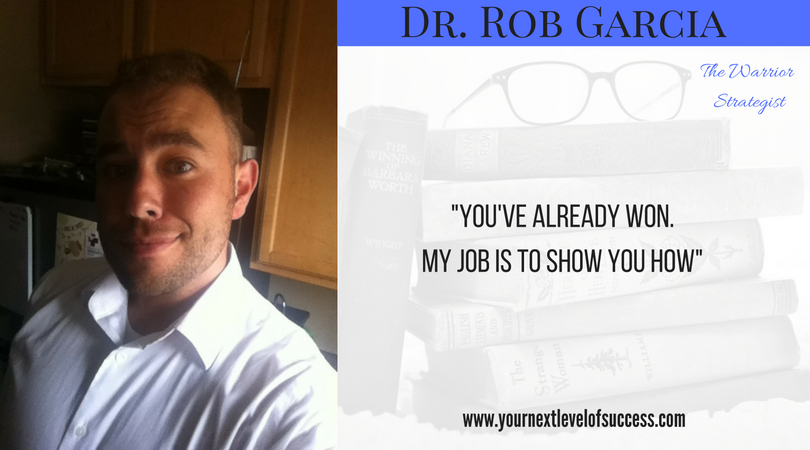I was stunned at the response from all of my fellow UOP
students. In one day 20 people responded to my post and at least 7 personally
emailed me. I sat at work and thought about how I could write a second article,
even more powerful, and that had specific tips for accelerating their success.
This is what I compiled. Please read the following two quotes slowly and really
absorb the words. They are carefully chosen for your success.
First I would like you to gain a solid understanding of what
a Doctorate is.
"The objective of a doctoral degree is to create high
quality research and verifiable findings that are relevant, thought provoking,
and constitute a significant contribution to the existing body of research in
your desired topic." - Dr. Robert Garcia
Next, I would like to offer my opinion as to what
constitutes a doctoral student/candidate:
"A doctoral student/candidate synthesizes existing
knowledge, draws conclusions and interjects their personal research and
findings." -Dr. Robert Garcia
Now that I have shared what is expected of your work and
yourself, I'd like to share several tips to aid your growth as a
student/candidate.
Mentor/Committee- If you can't find faculty with the UOP
resources, there is nothing wrong with politely writing as many faculty members
as possible and asking them if they know anyone. I would also use Linkedin and
use the search engine to see who pops up.
Residency- Take as many business cards as you can, and GET
EVERYONE'S CONTACT INFO. These people are your comrades-in-arms and at times,
will be your main source of strength after a challenge. The smartest thing I
ever did was circulate a contact sheet and kept it close to my desk.
When you get to your dissertation, keep it at your level of
confidence. This means if you are writing about healthcare, a dissertation
involving hospital billing in 10 states will be a lot more complicated than
writing about hospital billing in one city. I wrote about Project Based
Learning and if I had gone with the original plan of using teen respondents,
would have tripled the paperwork and complexity. The key word here is
"manageable."
Creating powerful content is essential to your evolution as
a student. About halfway through the journey, I started to realize that three
sentences that were written at a high level could beat out three pages that
were written "to get the job done." Think about the impact
of statement. Write for content,
not completion.
When you get to your dissertation, you will be tasked with
writing at the highest level of comprehension. Don't let this intimidate you. You
have 10 times as many resources as you think for drawing research from. Write
with confidence and power. Here are several tactics I used to create a well
received and comprehensive dissertation:
1. Don't get caught up in "Americanism." Foreign
studies, journals, and research can benefit you GREATLY in your doctoral
journey. Don't get caught in the trap of only using American resources and
articles. Check foreign universities, trade journals, and studies. Has anyone
from Oxford Malaysia , India ,
and Australia
2. Are there similar organizations that have content or
findings that can help? Don't just use Proquest, branch out. If you are writing
about law, use articles from a law school, if you are writing about business,
what does Wharton say about your topic? Are there trade journals or
organizations that have content/research/findings that can strengthen your
cause/paper?
3. Find relevant sub-topics that strengthen your writing and
research. Remember to not create "fluff" but to build a cohesive foundation of knowledge. When I
wrote about Project Based Learning, I researched the history of education, PBL
practices in early education, the tie in with the ASVAB (military testing) and
other schools that used PBL exclusively. This created a wider body of
knowledge, and to be honest, made me a better subject matter expert on PBL.
4. Who are the pioneers in your topic? Are there people that
can be written about? Anyone that has significantly affected the subject with
research/achivement/findings?
5. Check for documentaries and public groups/organizations.
It's perfectly acceptable to cite from media sources if they offer tangible and
peer accepted information about your topic. PBS was cited for a documentary
they created about early education.
6. Trade specific journals in your subject or degree
grouping can offer a wealth of studies, articles, and knowledge. Here are a few
tips for finding them:
Healthcare: Google "healthcare publications," "medical
journals," "hospital trade journals"
Education: Google "educational journals,"
"school research magazines," and "education based
publications"
7. Find real life examples. For my dissertation, I
researched actual schools that have been written about that use PBL. Find out
how people around the world are using your subject matter and creating results
from it. Narrowing your Google search can provide educational gold.
Thanks for taking the time to read this. I wanted it to be
powerful and concise. If you have questions, don't hesitate to email me:
dragonsgold76@gmail.com. My company website is found at www.bluedragonent.com. It has a listing of my books and services. I don't charge for helping students so feel free to write with questions.
Sincerely,
Dr. Rob
